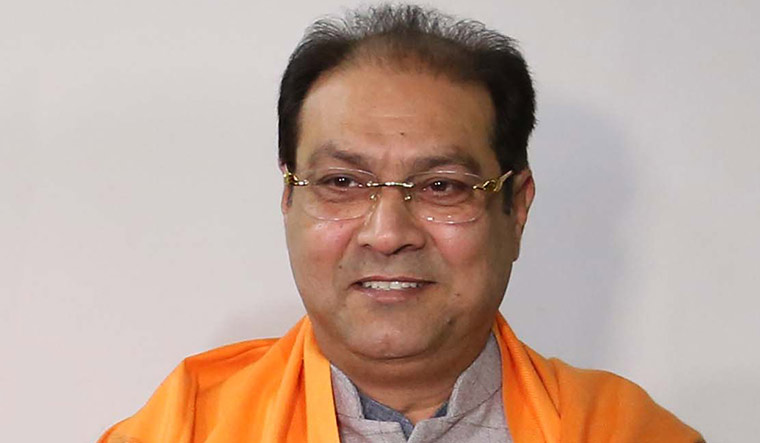As a Muslim who has long supported the construction of the Ram temple, what does this verdict mean to you?
This was a long, festering dispute. The generation that is building a ‘New India’ had never experienced it first-hand, but lived through its consequences. This verdict sends a positive message to the world. It is welcome because it upholds the Ganga-Jamuni culture of the country.
Yet the verdict is not acceptable to all. The All India Muslim Personal Law Board, for instance, has said that it will challenge it.
To the best of my knowledge, the board is an NGO and there are many of the kind in the country. Muslims have no personal law. Just the Quran. What is the personal law that the board has formulated?
Those saying that they will challenge the verdict might have studied law, but they would do well to study the Quran as well. Conflict is not the way of the Quran.
Also read
- Ayodhya's traders turn to Hanuman to rescue them from being uprooted for the Ram temple
- Ayodhya Ram Mandir's garb griha has a Muslim connection
- ‘Don’t donate silver bricks, bank lockers have no space’: Ram Mandir Trust
- Land ownership plea not related to Dhannipur, says official
- Work on laying foundations for Ram temple in Ayodhya to begin after Dec 15
- A(Yodh)Ya—The land of no conflict
- Ram mandir: Digivijaya sharpens attack on PM Modi over 'inauspicious mahurat'
Do you think the verdict caters to the emotions of all concerned?
The giving of five acres to Muslims is not an act of benevolence. It is a mark of respect for them. Everyone is part of this verdict. It caters to everyone’s sentiments. Muslim religious leaders on many occasions have said that the mosque could be built on an alternative site. The court has honoured this sentiment.
Did the CBI inquiry into the sale of waqf properties influence the legal course taken by Muslim parties?
For the last 10 years, there have been demands for inquiries into the sale of waqf properties. Such properties should be used for the benefit and uplift of poor Muslims, but have been used for personal gains. Intellectuals and religious leaders had made the demands [for inquiries] much before we came to power. I told the chief minister that there was no way for us to resolve the matter, and that it must be given to the CBI. It would be wrong to draw any connection [with the inquiry and the Ayodhya case].
How easy or difficult would it be to choose the land for the mosque?
I have met many religious leaders who are keen that the land must be far from the disputed site so that there is no possibility of any future animosity. What could be a better symbol of this country, though, that if the mandir is visible from the mosque and vice versa? Muslims must contribute to the building of the mandir; our Hindu brothers should come forward to build the mosque.


